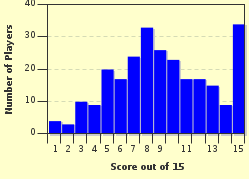Quiz Answer Key and Fun Facts
1. Nero became emperor at the age of seventeen, the youngest of the Julio-Claudian emperors. What was the name of the Guard Commander who attended him when he was hailed as emperor?
2. Which child of Claudius was poisoned by Nero?
3. Which adviser, who served under Claudius, did Nero depose early in his reign?
4. Later in his reign, Nero surrounded himself with coarser aides. Who became Praetorian Prefect and assisted Nero in his reign of terror?
5. What disrespect did Nero show towards a divinity?
6. What was Nero's paternal grandfather's name?
7. Who tutored Nero during his adolescence and early in his reign?
8. Gaius Petronius was an important member of Nero's court until he fell out of favor. He is thought to be the author of "The Satyricon." When he fell out of favor, Nero ordered his suicide. What did Petronius do before he died?
9. Which of the following was a positive result of the Great Fire of Rome?
10. The Christians were put to death by which method?
11. With his treasury becoming empty, Nero had to search for funds to rebuild Rome. Which is of the following was NOT a source of income for Nero's city planning?
12. The death of Nero's second wife, Poppaea Sabina, caused him great grief. He gave her a lavish funeral and had her body preserved in the Egyptian fashion rather than burned in Roman style. What was the cause of her death?
13. In AD 65, a conspiracy was formed against Nero, involving over 50 people. Who headed the conspiracy?
14. Having ordered one of his generals, Corbulo, to commit suicide, Nero was obliged to appoint another commander to deal with the Jewish revolt. Whom did Nero appoint?
15. What was a key factor in the fall of Nero?
Source: Author
medvedok
This quiz was reviewed by FunTrivia editor
bloomsby before going online.
Any errors found in FunTrivia content are routinely corrected through our feedback system.

